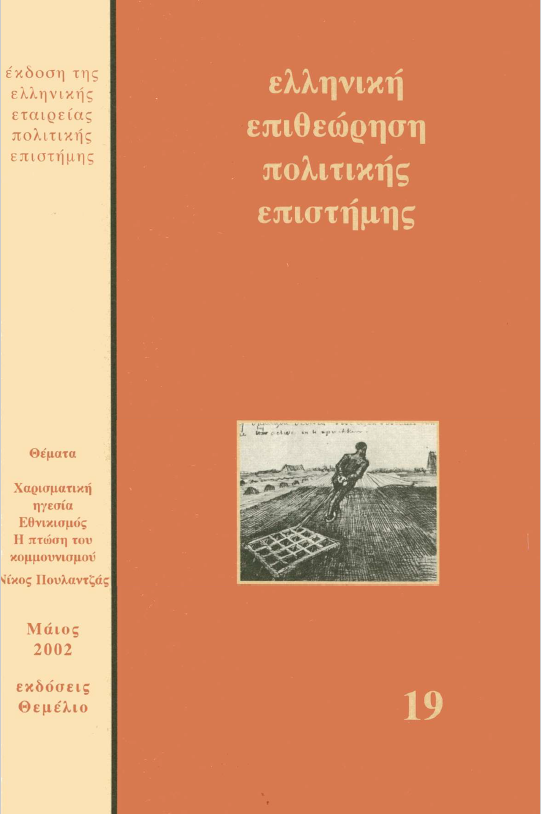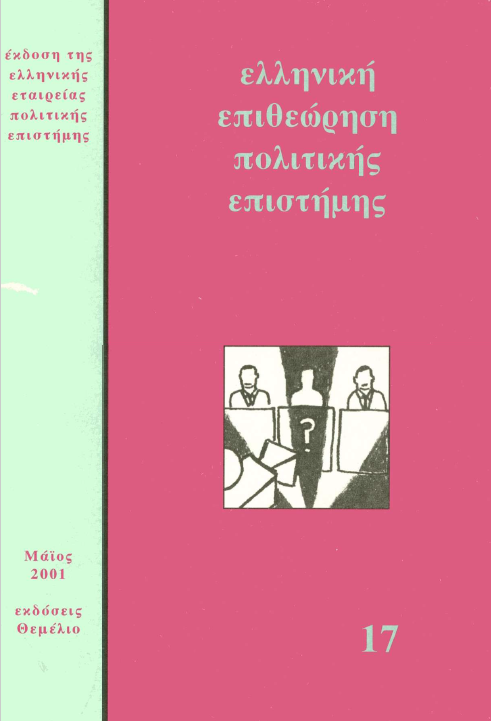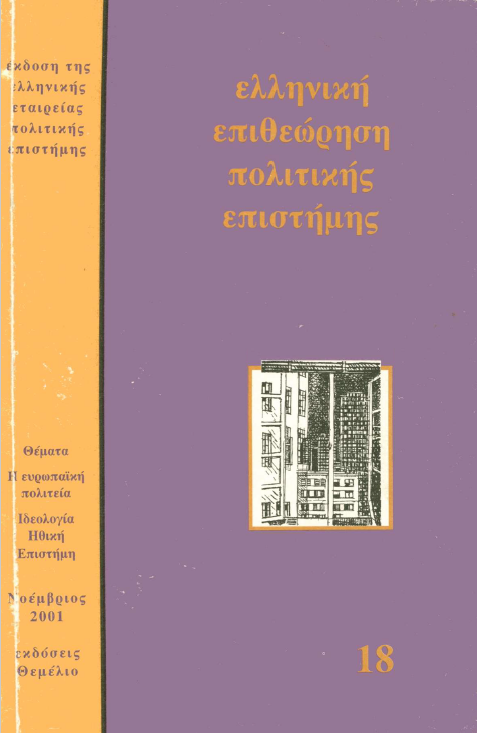The end of charisma? Political crisis, charismatic leadership, and democracy in twentieth-century Greece
Abstract
This article seeks to account for the heavy and almost continuous presence of charismatic leadership in twentieth-century Greek politics, as well as provide some explanation about its recent decline. Rather than putting emphasis on the personality traits of charismatic leaders, or the nature of their respective followings, the focus of the article is on the nature of crises facilitating the emergence of charisma. Such crises, the article claims, may be of two distinct types, real or invented, each type leading to a different kind of charismatic emergence. Real crises, first, may concern either national security or the survival of the democratic regime. In such cases, the people in crisis invite a leader who they think possesses charismatic qualities, and who, after resolving the crisis, is acknowledged the savior of the entire nation. On the other hand, invented crises are not about the type of regime, which is democratic, but about its imperfect functioning. Here, charismatic leaders, by managing to represent reality as if it were in a state of unresolved institutional crisis, receive delegation from broad popular masses in order to “save” democracy. This kind of charismatic emergence often leads to populism or to real political crisis, which may cause the downfall of existing democracy. To clarify its theoretical propositions, the article uses six case studies from the recent historical record, three of them representing real crises (the 1909 Goudi revolution, the National Schism of the years 1915-17, and the 1974 transition to democracy), the other three representing invented crises (the 1935 military revolt, the “unrelenting struggle” of George Papandreou, and the meteoric rise of PASOK). Charismatic leaders, the article concludes, are unlikely to rise as long as large crisis situations are deterred from occurring, something, however, that might not be always possible in the future.
Article Details
- How to Cite
-
Παππάς Τ. Σ. (2017). The end of charisma? Political crisis, charismatic leadership, and democracy in twentieth-century Greece. Greek Political Science Review, 19(1), 22–58. https://doi.org/10.12681/hpsa.14997
- Issue
- Vol. 19 (2002)
- Section
- Articles

This work is licensed under a Creative Commons Attribution-NonCommercial-ShareAlike 4.0 International License.
Authors who publish with this journal agree to the following terms:
Authors retain copyright and grant the journal right of first publication with the work simultaneously licensed under a Creative Commons Attribution licence that allows others to share the work with an acknowledgement of the work's authorship and initial publication in this journal.
Authors are able to enter into separate, additional contractual arrangements for the non-exclusive distribution of the journal's published version of the work (e.g. post it to an institutional repository or publish it in a book), with an acknowledgement of its initial publication in this journal.
Authors are permitted and encouraged to post their work online (preferably in institutional repositories or on their website) prior to and during the submission process, as it can lead to productive exchanges, as well as earlier and greater citation of published work (See The Effect of Open Access).





